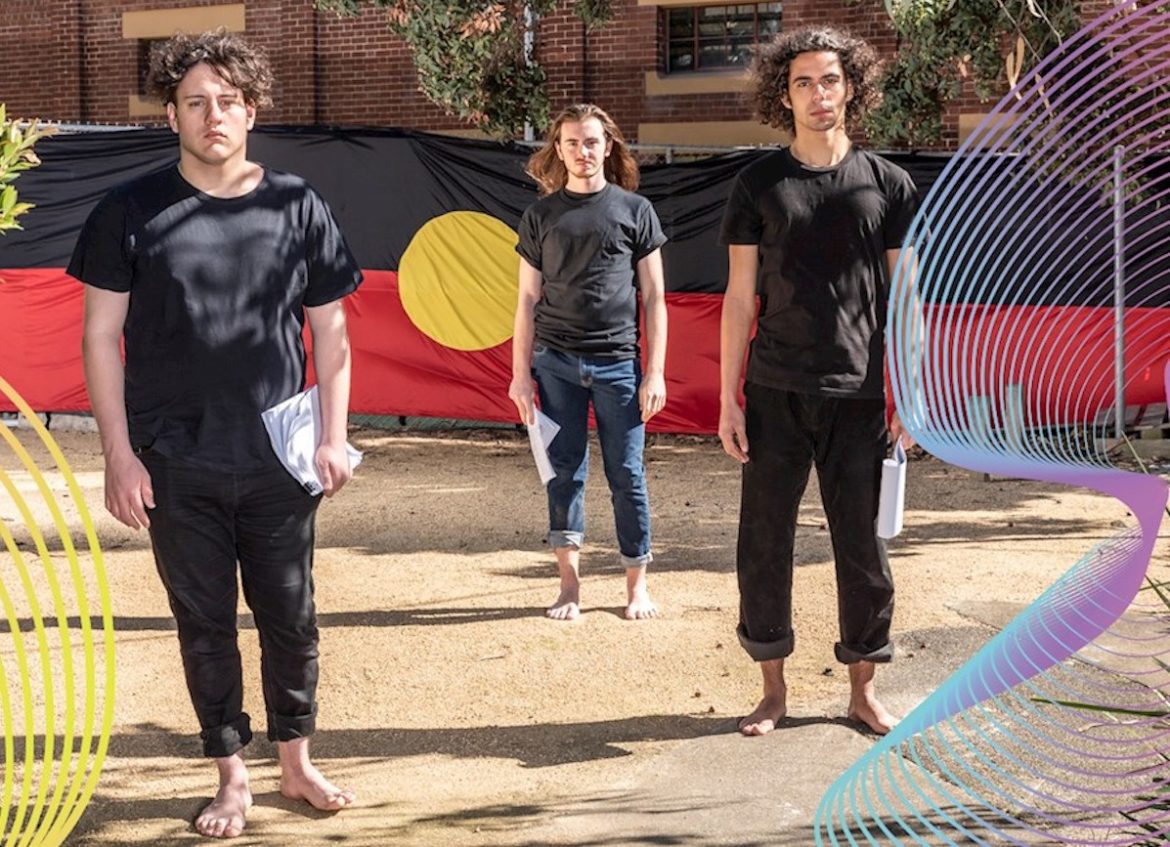Richard Frankland’s Conversations with the Dead is given a stirring new production by Ilbijerri Ensemble, says Monique Grbec
From 1987 to 1991, the Royal Commission into Aboriginal Deaths in Custody (RCIADIC) investigated the deaths of 99 mothers, fathers, brothers, sisters, uncles, aunties, children, grandparents and friends. Unsurprisingly in a country where Aboriginal children can still be imprisoned for stealing a bicycle, few of the recommendations have been implemented. Since then, the rate of Aboriginal deaths in custody has risen by over 100 per cent, with another 424 deaths in custody since the report was submitted to Government. Despite thousands of witnesses of police brutality for the 523 Aboriginal deaths in custody since 1980, not one officer has been charged. Not one.
What are the impacts on an idealistic Koorie man in his mid-20s who investigates the deaths in custody of his people? In his 2002 play Conversations with the Dead, award-winning writer, musician, film-maker and cultural activist Dr Richard Frankland uses hip hop and rock to reveal the frustrations of marginalised people struggling with dispossession and the generational oppression of colonisation. Presented by Ilbijerri Theatre Company at Fairfax Studio, it’s part of the Arts Centre Melbourne’s youth-led Future Echoes Festival pilot year.
Ilbijerri Ensemble, a development program for emerging First Nations artists, unanimously selected Conversations with the Dead as their inaugural performance. Their collective voices unite to amplify Frankland’s conversations under the craft of debut director actor Shareena Clanton, who was mentored by Ilbijerri artistic director Rachael Maza. The long standing ovation is testimony to the play’s place in the Australian Society of Authors’ top 200 Australian greatest literary works.
The seven-strong Ilbijerri Ensemble, six men and one woman, make the slow walk towards the stage. They come from different directions, including from the audience, but they all sing together with the one voice. We are asked to imagine: to put ourselves in the position of Jack (Caleb Thaiday), one man on his own without training or a brief, who is responsible for investigating the lives of the dead, from the perspective of those who knew them and those who judged them.
Jack follows his morning routine of waking up to mentally list the hanging points around his home. As if he’s testing the texture of fabrics, he lists possible tools: socks, cord, rope. He has a wife and children who need him, but he fears cuddling his son; he’s afraid he will suck the life out of him.
So loud but no-one can hear. Universal truths of the marginalised blur identity, and Jack’s experiences blend and layer into larger generational traumas. I wanted to help him but I can’t help myself. I hear the dead and those whose hearts break for them. I feel the hurt of my heart burning on the stage. I could have done more. If the world stopped for a moment of calm, I would cry.
The minimal set design by Darryl Cordell has maximum, multilateral impact. Scaffolding stretches the width of the stage and at times actors climb it to speak from platforms. As a temporary structure intended to aid workers in the building or maintenance of manmade structures, this wall of scaffolding works like an emotional crutch to aid the telling of investigation findings. It provides a platform for the dead and heartbroken and gives voice to the experiences buried and silenced within the report.
Along with the sound design of James Henry, lighting designer Richard Gorr creates drama: red light bleeds across the set, invoking the blood of self-mutilation, drunken bar fights, and the sickening stickiness of a slashed throat that seeps through Jack’s suit onto his skin. How can his wife ever understand? He leaves her to wash this woman’s life fluid from me.
Despite the blood and darkness, Frankland’s musicality reverberates with a bright, uplifting call to arms. The Ilbijerri Ensemble bring dreams of woomera and connection to Country to life through dance and clapsticks that resonate from the stage to the audience. European temporality, the scaffolding and bureaucracy of RCIADIC, are forgotten. We are returned to the eternal, a time and place before England and its convicts, before ownership and prisons and these deaths.
Conversations with the Dead, by Dr Richard Frankland, director Shareena Clanton, director mentor Rachael Maza; set and costume Darryl Cordell; sound design James Henry, lighting design Richard Gorr. Ilbijerri Theatre Company. Arts Centre Melbourne, Fairfax Studio. Closed.

